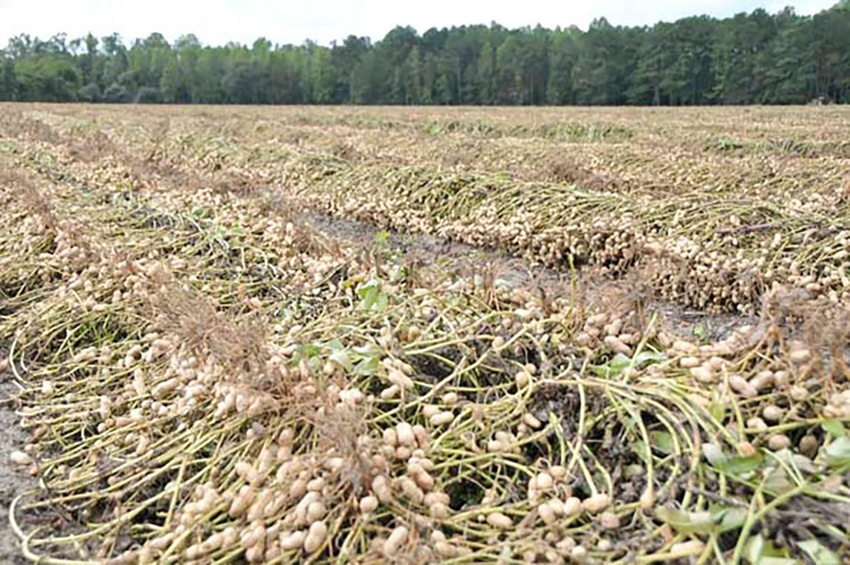
Peanut harvest is underway and Clemson researchers, in conjunction with the National Peanut Lab, have developed a new tool to help farmers get a better idea of how grade affects crop value.
The Clemson Peanut Loan Rate Calculator is a web-based app that allows farmers to enter grades for Runner type and Virginia type peanuts, and calculate loan values for a specific year and segregation level. Farmers using this app also can explore historical loan rates for the same inputs to use for comparison.
“Peanut farmers who have ever tried to calculate peanut discounts, premiums and values for inspection sheets, know these calculations can be overwhelming,” said Kendall Kirk, precision agriculture engineer housed at the Edisto Research and Education Center (REC) in Blackville, South Carolina, who helped develop this app. “We’ve put together a web app that allows farmers to perform these calculations effortlessly from their smartphone or computer for performing unofficial ‘what-if’ scenarios and for converting loan rate to dollar-per-acre basis.”
Nathan Smith, Clemson Cooperative Extension Service professor and agribusiness program team director director stationed at the Sandhill REC in Columbia, South Carolina, said this calculator is important because peanut farmers are paid for their crops based on yield, as well as grade. Prices are set on the base national loan rate adjusted for premiums and discounts.
“Dr. Kirk and I talked about creating a loan calculator as an educational tool for farmers and for researchers to use for their test results if they do their own grading,” said Smith, who also helped develop the calculator. “Farmers can use this calculator to see differences in loan rates at different grades and segregation levels.”
Peanuts are graded at the buying point according to standards set by the United States Department of Agriculture. Inspectors establish kernel content, size of pods, kernel size, moisture content, damaged kernels and foreign material. Inspection results determine the overall quality and value of each load.
Segregation levels are used for quality control. Segregation I peanuts are edible. Segregation II loads include peanuts that exceed minimum damage levels. Segregation III indicates Aspergillus flavus was detected during the grading process. Aspergillus flavus is a mold capable of producing aflatoxin. Designation as a Segregation II or III reduces load value, said Dan Anco, Clemson Extension peanut specialist.
“Peanuts designated as Segregation II or III generally are destined for the oil market,” Anco said.
The Peanut Loan Rate Calculator is one of several free, web-based apps from Clemson Precision Agriculture. These apps are accessible from just about any device with a web browser and can be found at https://bit.ly/CU_CalculatorsAndWebApps.
Peanut is a major crop in South Carolina. The USDA National Agricultural Statistics Service reports 85,000 acres of S.C. peanuts with a production value of more than $58 million were planted in 2020. The National Peanut Board reports six states – Georgia, Florida, Alabama, Texas, North Carolina and South Carolina – grow nearly all of the peanut crop in the United States. The Peanut Money-Maker, 2021 Production Guide has more information related to the South Carolina peanut crop.
Source: Clemson University, which is solely responsible for the information provided, and wholly owns the information. Informa Business Media and all its subsidiaries are not responsible for any of the content contained in this information asset.
About the Author(s)
You May Also Like






